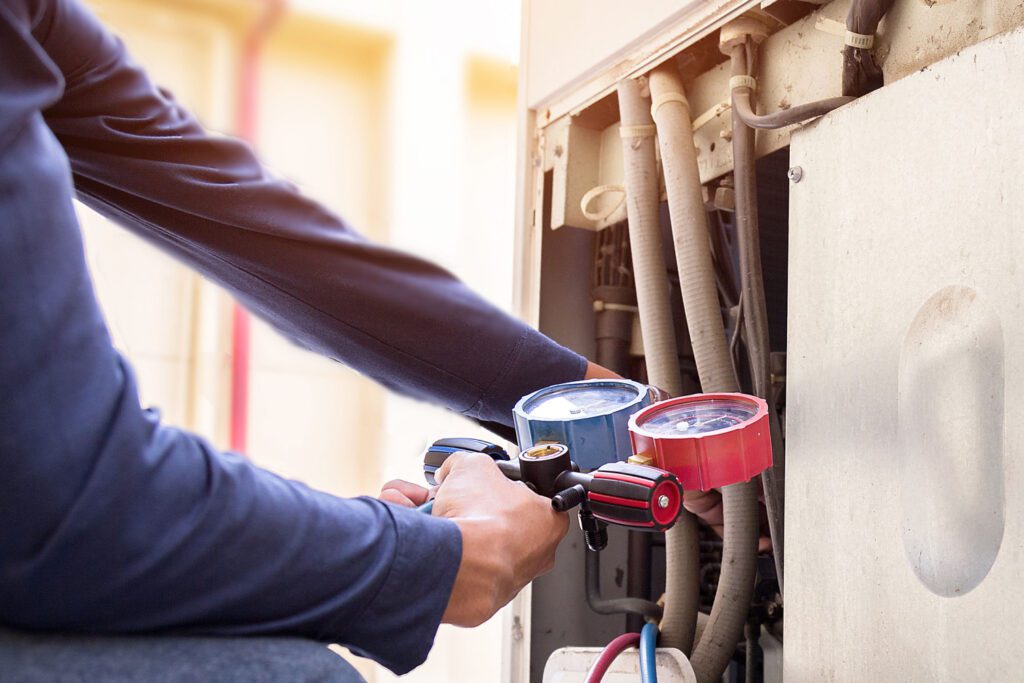Maintaining a safe and healthy home environment goes beyond regular cleaning and organizing. One crucial aspect often overlooked is the proper care and attention given to your Heating, Ventilation, and Air Conditioning (HVAC) system.
Your HVAC system plays a pivotal role in regulating indoor temperature and air quality, but it can pose potential safety risks without proper maintenance. This article will explore essential HVAC safety tips to ensure your home remains a haven of comfort and well-being.
6 HVAC Safety Tips for a Safe and Healthy Home
How do you keep your home happy and healthy? It’s all about the air quality coming from a well-functioning HVAC system. Here are six safety tips to keep the appliance running smoothly.
1. Conduct Regular Inspections and Maintenance
One of the fundamental steps in ensuring HVAC safety is to conduct regular inspections and maintenance. Schedule professional inspections at least once a year to identify and address any potential issues.
This includes checking for leaks, inspecting electrical components, and ensuring proper airflow. Routine maintenance not only prolongs the life of your HVAC system but also reduces the risk of malfunctions that could lead to safety hazards.
2. Perform Carbon Monoxide Detection
Carbon monoxide (CO) is a colorless and odorless gas that malfunctioning heating systems can produce. To protect your household from this silent threat, install carbon monoxide detectors in crucial areas of your home, especially near sleeping areas.
Regularly test and replace the batteries in these detectors to ensure they function correctly. Additionally, schedule professional inspections to detect and address any issues with your heating equipment that may contribute to carbon monoxide production.
3. Remember to Check Your Indoor Air Quality
HVAC systems play a vital role in maintaining indoor air quality. Regularly replace air filters to prevent dust, allergens, and pollutants buildup. Dirty filters compromise air quality and strain the HVAC system, reducing efficiency.
Use high-quality filters and consider upgrading to filters with a higher MERV rating for improved filtration.
4. Ensure Proper Home Ventilation
Proper ventilation is crucial for maintaining a healthy indoor environment. Ensure that vents and ducts are free from obstructions and clean them regularly.
Blocked vents can lead to inefficient heating or cooling, causing the system to work harder and potentially posing a fire hazard. Keep furniture and other items away from vents to allow for proper airflow. This is an important step to pay attention to if you want to ensure HVAC safety!
5. Reaffirm Electrical Safety on Your Property
Given the electrical components in HVAC systems, it’s essential to prioritize electrical safety. Ensure that all electrical connections are secure and there are no exposed wires.
If you notice any electrical issues, such as flickering lights or tripped circuit breakers, seek professional assistance promptly. DIY electrical repairs can be dangerous and are best left to qualified technicians.
6. Double-Up on Your Emergency Preparedness
In the event of a power outage or system malfunction, it’s essential to have an emergency plan in place. Please familiarize yourself with the location of the main power switch for your HVAC system and know how to turn it off in case of an emergency.
Additionally, have contact information for HVAC professionals readily available for prompt assistance with HVAC repair.

There’s Always an HVAC Specialist on Call for Your Comfort
These proactive measures protect your home and loved ones and contribute to your HVAC system’s longevity and optimal performance. Remember, a well-maintained HVAC system is the key to a comfortable and secure home.
However, suppose you have an HVAC emergency or need more advice. In that case, A-Tech Appliance Repair has dedicated specialists on call for solutions.
Contact them as soon as you need HVAC specialists for the best people in the business.



